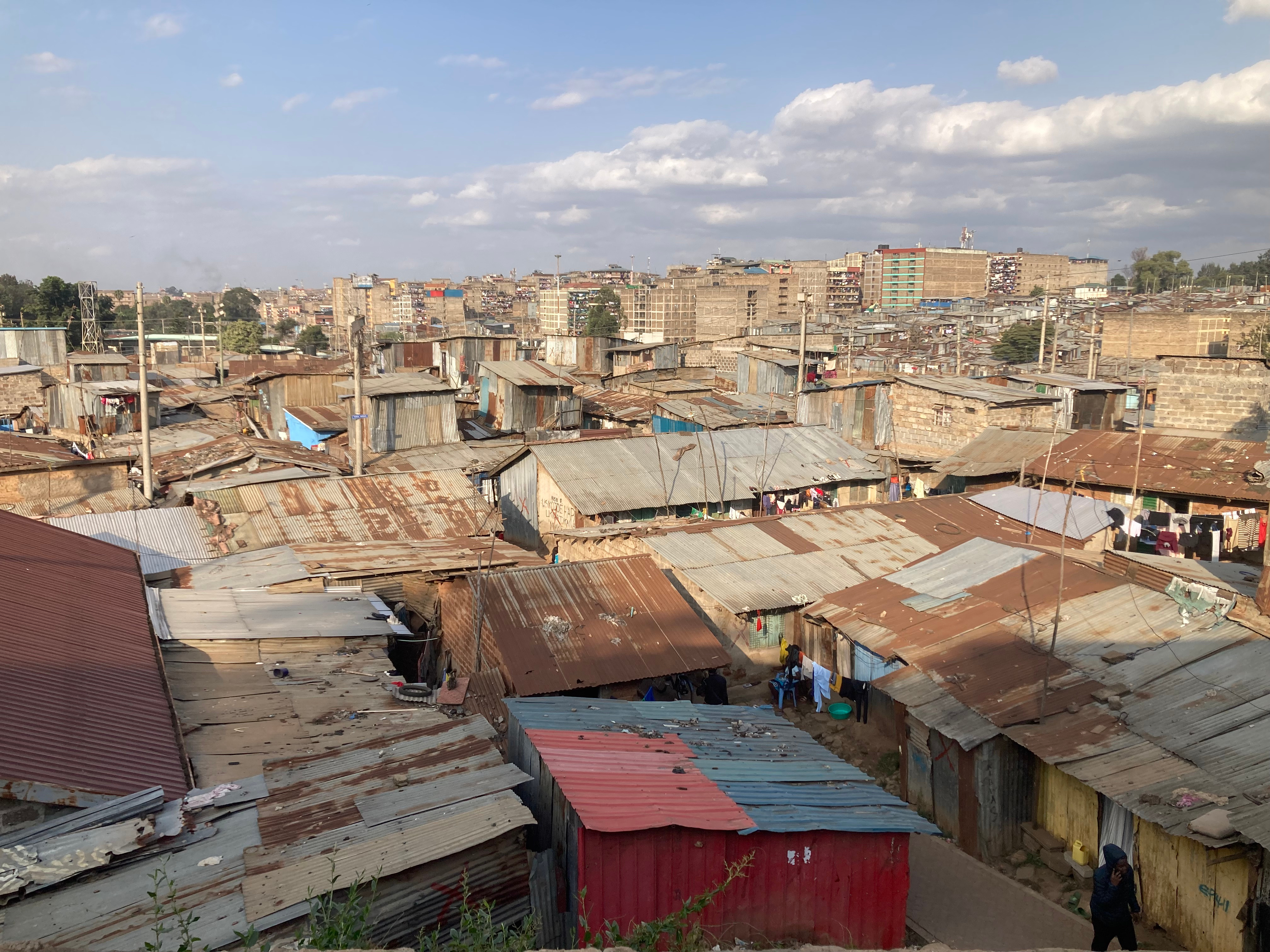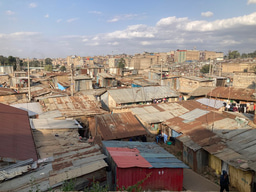Reframing research based on 10 days of fieldwork in Nairobi, Kenya
It's 3:55pm, and I'm one the back of a motorbike, bumping my way out of Kibera to find a quiet spot to join the Laidlaw global induction event. I have just had a meeting with a local community leader, CharlesOgutu, and his message is clear, 'Chamas' (community based savings groups) are not just a means of providing financial services to the 'base of the pyramid', they are a tool for promoting financial literacy and providing business knowledge. The first rung on the ladder for Kenya's most economically marginalised.

Since coming back from 10 days of research in Nairobi I have sat down a couple of times to write this reflection with no success. Seemingly, the greatest challenge of the last two weeks for me has not been hectic days of meetings, new information and moving around one of East Africa's largest and most diverse cities, but taking the time to sit down, relax and process my time there. Having now been back for a few days, and continuing to find my reflective skills not as sharp as I would like, I feel the only logical course of action is to get myself another coffee and force myself to just start writing.
I arrived in Nairobi at 23:50 on the 5th of June. I had a plan, a to-do list and what I thought to be a strong and relatively well researched idea for my project, 'Does the inclusion of peer-support networks notably boost the efficacy of grassroots microfinance programmes'. Within the first 24 hours, my to-do list had been disregarded (with the exception of scheduled meetings), and my project title demoted to a mere placeholder. Here I am quite happy with my decisions, a conversation with my taxi driver and a little reflection in my room afterward was enough to broaden my lens and begin to think about reframing my research to be more in line with realities on the ground. After all, a study of informal economies based solely on formal research is, at best, naïve — and at worst, intellectually irresponsible.
Don't get me wrong here, my initial hypothesis was not necessarily incorrect, more the wording of the title and the angle I was approaching from slightly redundant. Is it really possible to launch a grassroots initiative without the involvement of personal connection, community and peer-support? I strongly feel it is not, and as such peer-support networks are less a boost to a programme and more a prerequisite.
This is where I was first introduced to the concept of a Chama, a member-governed savings group where participants meet regularly and contribute a fixed amount. They are held together on trust and shared commitment, and have been so successful that an estimated 41% or Kenyans are in at least one (FSD, 2019). It is this information, more than anything, that made me feel my original title was redundant. Community savings groups have been a quintessential part of the Kenyan informal economy for decades.
So where do I go from here? I have certainly not hit a roadblock. Anything but in fact. I have been presented with roughly 22,000,000 people involved in self-governed, trust-based savings groups and a comparatively tiny pool of research exploring how and why some of these programmes are so effective. As a joint Economics and Social Anthropology student, I feel this area opens up an incredibly rich opportunity to analyse and learn from a unique and deeply-rooted element of the cultural and economic system.
Following a meeting with my supervisor, we’ve decided that the project should aim to unpack the concept of the Chama, alongside its more formalised and regulated counterpart, the SACCO. From there, I will examine data from both models to better understand their differences and similarities — particularly in relation to community dynamics and peer-support mechanisms. While it would be unrealistic for this project to offer definitive conclusions, I hope it can serve as an advisory engagement and contribute a simple yet nuanced understanding of the current landscape, as well as suggest directions for future research.



Please sign in
If you are a registered user on Laidlaw Scholars Network, please sign in
I resonate with the experience of having the research reveal some quite unexpected things and realising how out of place doing formal research can feel when you're speaking with communities built on informal but deeply personal and supportive connections. Great to hear that you've been able to still plot a path forwards from this though, best of luck.